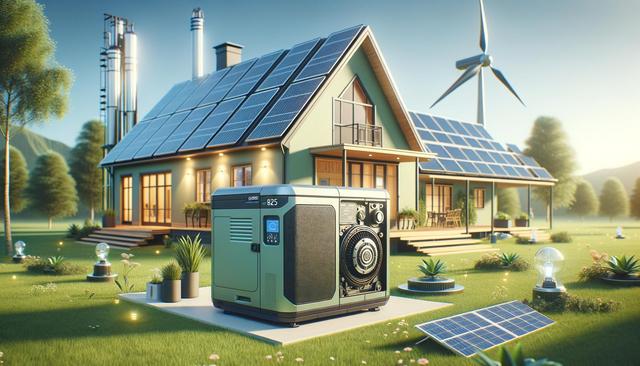Understanding the Need for Backup Power
Power outages have become increasingly common in recent years, driven by extreme weather events, aging infrastructure, and rising energy consumption. In 2025, this trend shows little sign of slowing down. For homeowners, the inconvenience of being without power can range from minor disruptions to serious risks, especially in regions where climate can be harsh or where remote work and virtual learning depend on steady internet connectivity. A home generator offers a practical solution by providing backup electricity during outages, helping to maintain comfort, safety, and productivity.
Outages can result from various causes, including:
- Storms and natural disasters like hurricanes, wildfires, or blizzards
- Grid failures due to equipment issues or demand overload
- Planned power cuts for maintenance or fire prevention
Having a generator in place means that essential appliances—such as refrigerators, heating and cooling systems, and medical equipment—continue to function even when the grid is down, giving homeowners peace of mind.
Types of Home Generators Available
There are several types of home generators available in 2025, each designed to meet diverse homeowner needs. The two main categories are portable generators and standby generators. Portable units are typically smaller, cost-effective, and suitable for short-term use, while standby generators are permanently installed and can automatically activate during an outage.
Key differences include:
- Portable Generators: Easy to move, ideal for occasional use, usually gas-powered
- Standby Generators: Connected directly to the home’s electrical system, often powered by natural gas or propane, and offer seamless transition when power is lost
Hybrid models and solar-powered options are also emerging, especially for environmentally conscious consumers. These alternatives may be more expensive upfront but can lead to significant savings over time, especially in areas with high energy costs or frequent outages.
Factors to Consider Before Buying
Before investing in a home generator in 2025, it’s important to evaluate your household’s specific needs. Consider the following factors:
- Power Requirements: Make a list of essential appliances and determine the wattage needed to run them during an outage
- Fuel Source: Choose between gasoline, propane, natural gas, or solar based on availability and preference
- Installation and Maintenance: Standby units require professional installation and regular servicing
- Budget: Costs can vary widely, so setting a budget helps prioritize features and capacity
Consulting with a licensed electrician or energy specialist can help you determine the appropriate size and type of generator for your home. Some local governments or utility companies may also offer incentives for installing energy-resilient systems.
Benefits of Owning a Home Generator
The advantages of owning a home generator extend beyond just convenience. For many, it’s about ensuring safety, reducing stress during emergencies, and preserving the functionality of their home. Some key benefits include:
- Continuous Comfort: Keep your HVAC system running, maintain lighting, and use kitchen appliances during outages
- Protection of Property: Prevent frozen pipes, spoiled food, and potential damage from sump pump failure
- Support for Remote Work: Maintain power to computers, routers, and other essential devices
- Increased Home Value: Homes equipped with standby generators may be more attractive to potential buyers
In 2025, as more people adapt to hybrid lifestyles and prioritize home-based activities, having a consistent power source becomes even more critical. A generator can help bridge the gap between unpredictable weather patterns and the need for daily reliability.
Preparing for the Future
Investing in a home generator now can be a forward-thinking choice, especially as energy management becomes a greater concern worldwide. Advances in technology mean that newer models are quieter, more efficient, and more environmentally friendly than ever before. Battery backup systems and solar integration options are also becoming more accessible, giving homeowners more sustainable choices.
To prepare for a generator purchase in 2025, consider the following:
- Research local regulations and permits for installation
- Compare warranties and customer support options
- Look into financing or rebate programs that may offset initial costs
With smart home integration on the rise, some modern generators can even be monitored and managed through mobile apps, allowing users to check fuel levels, run diagnostics, and receive alerts—all from their phones. These features add another layer of convenience and control as homeowners look toward the future of energy independence.
Conclusion: Is a Home Generator Right for You in 2025?
For many homeowners, 2025 presents an ideal time to explore the benefits of installing a home generator. As power outages continue to pose challenges and energy needs evolve, having a reliable backup system can bring both functional advantages and peace of mind. Whether you’re seeking to protect your home, maintain comfort, or ensure business continuity during blackouts, a home generator offers a practical and increasingly necessary solution. By evaluating your needs, researching available options, and planning accordingly, you can make an informed investment that supports both your current lifestyle and long-term resilience.




Leave a Reply